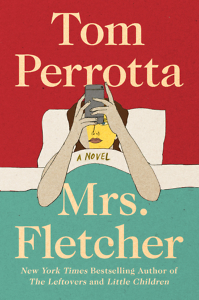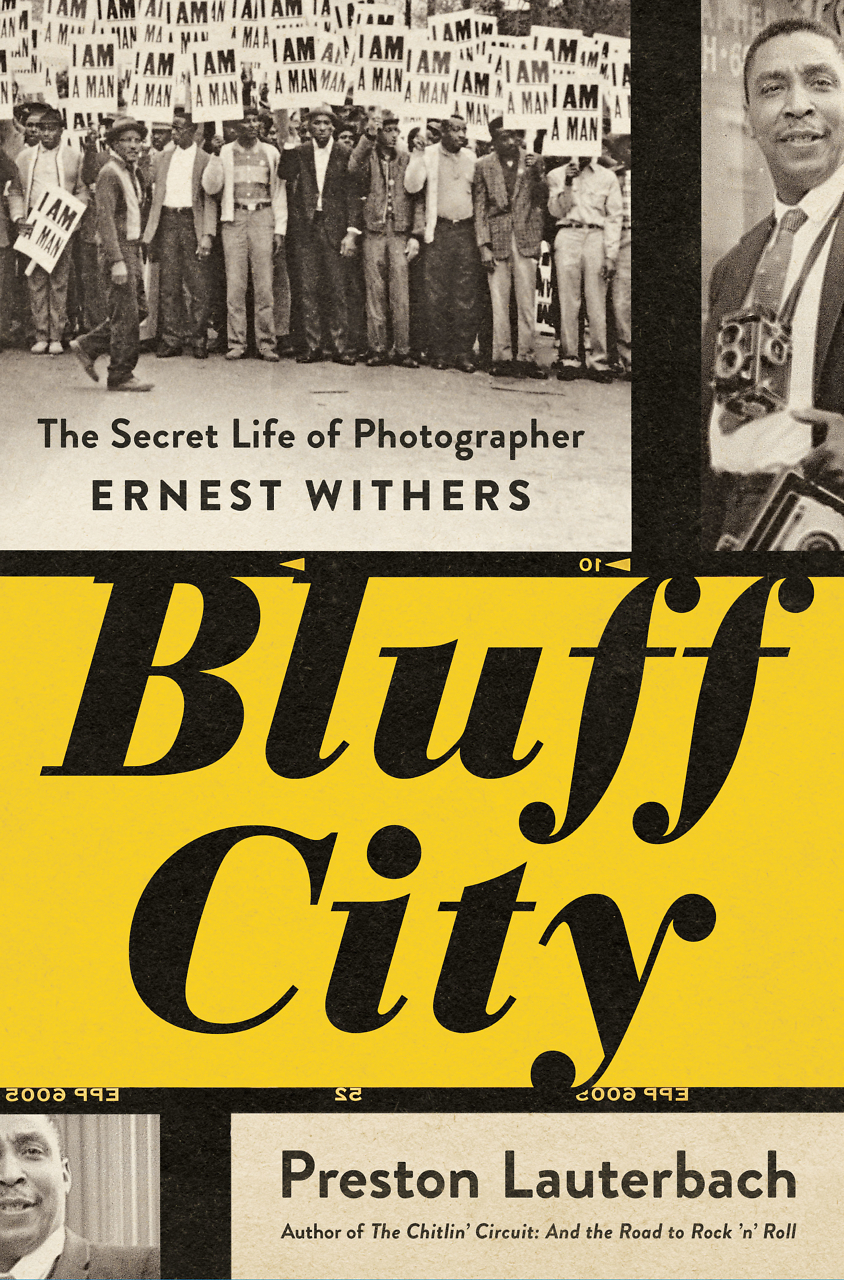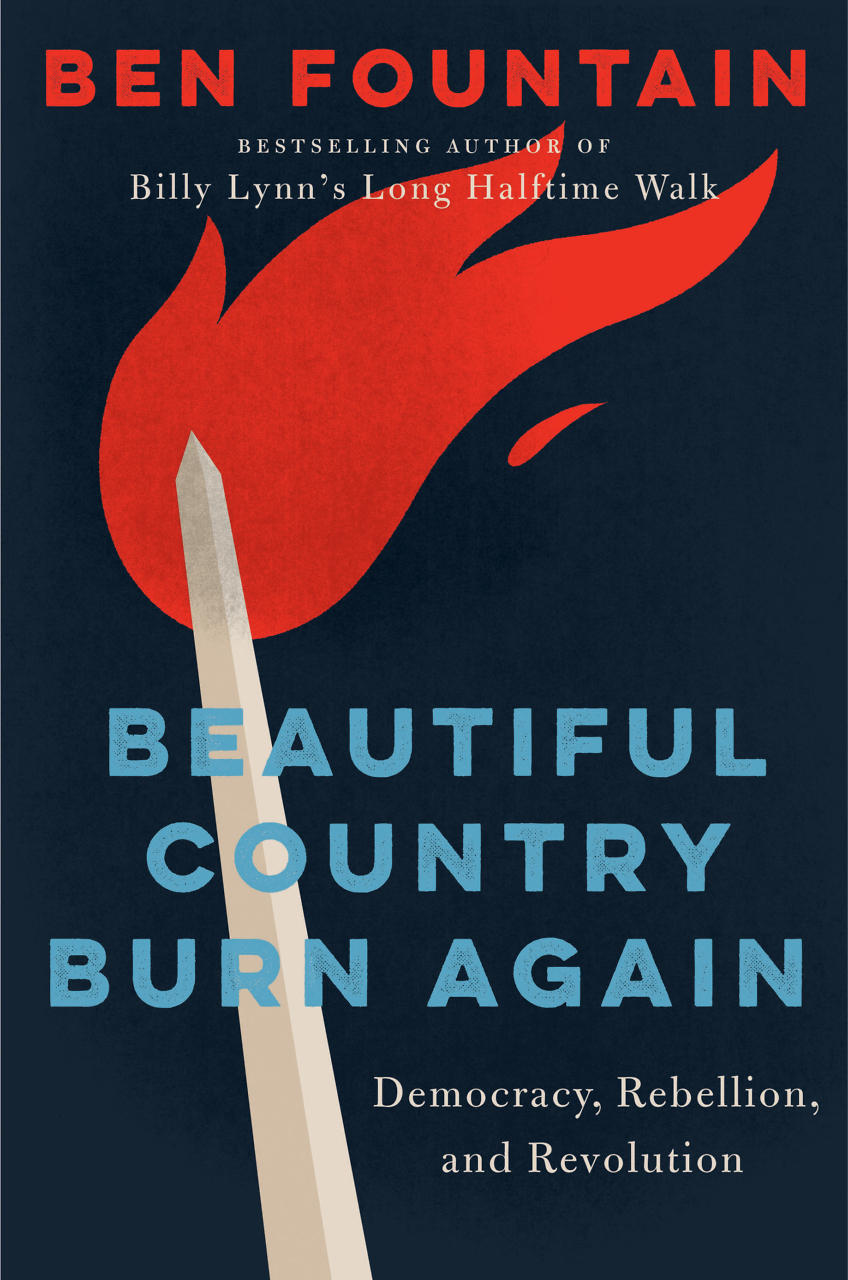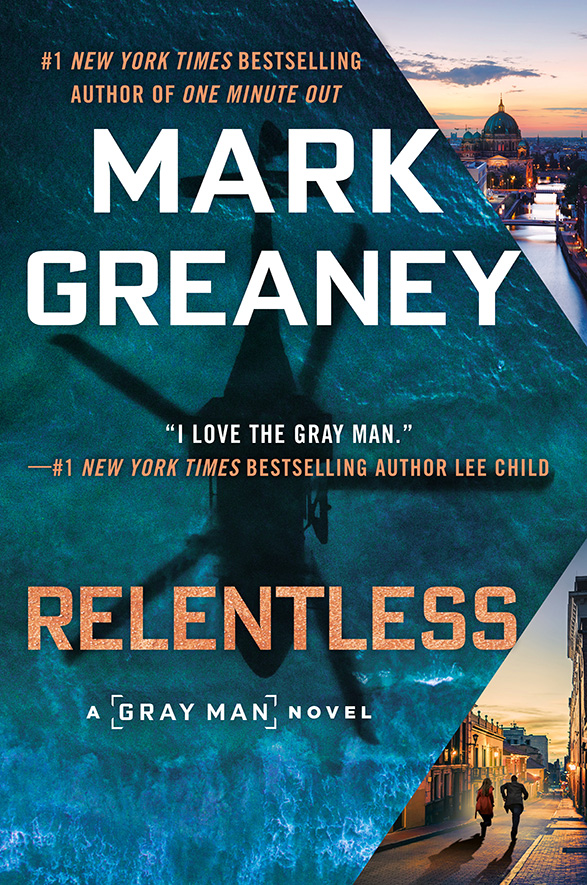A Bit of a Renaissance
Mrs. Fletcher is Tom Perrotta’s timely—and timeless—tale of a mother and a son and an empty nest
Tom Perrotta has a knack for timeliness. His best-known novels (and their film versions)—1998’s Election, 2004’s Little Children, and 2011’s The Leftovers—project hot-button issues and buzzy cultural themes onto a backdrop of evergreen domestic concerns. Whether he’s dissecting student-teacher power games, riffing on overinvolved parenting, or taking inspiration from an actual doomsday cult, his books are slick, delightful explorations of classic suburban mores garnished with contemporary concerns. With Mrs. Fletcher, his ninth book, Perrotta proves once more that he has his formula down pat.

Mrs. Fletcher ladles zeitgeisty details over a familiar plot that’s no less pleasurable for being tried-and-true. The title character, Eve Fletcher, is a divorced mom with a “permanently guilty conscience” as regards her only child, Brendan—a rising college freshman who’s too hung over, the morning the novel opens, to help Eve load the minivan for their inaugural drive to Berkshire State University. (Worse than Brendan’s hangover is the horrifying snippet of obscene dialogue that Eve overhears when his high school girlfriend swings by for a farewell quickie.)
Once they arrive at BSU, Eve and Brendan find themselves at classic mother-son cross purposes: she wants to stay; he wants her to leave. For a moment, as Eve steps forlornly into the elevator, and Brendan turns back to “full tilt male-bonding” with his dreadful new roommate, it looks as if Brendan will hit the ground running, and Eve’s in for a rough few months. Quickly, however, the tables turn. As Mrs. Fletcher toggles between Brendan, Eve, and a growing ensemble cast, we realize that Brendan’s actually headed for trouble, while Eve, back home, slowly blooms.
In the BSU chapters, Perrotta expertly skewers twenty-first-century college students, from bros to nerds to Brendan’s earnest crush, Amber, an “intersectional feminist” who finds herself inexplicably drawn to “hard-drinking white guys…marinated in privilege, unable to see beyond their own dicks.” (She’s just described Brendan to a T.) Amber’s a sophomore, thoroughly soaked in fashionable campus rhetoric: as she puts it, she’s a “straight, cisgender, able-bodied, neurotypical, first-world, middle-class white woman…a passionate opponent of capitalism, patriarchy, racism, homophobia, transphobia, rape culture, bullying, and microaggression in all its forms.”
 As the novel progresses, Brendan’s frat-boy persona turns out to be a beard for insecurity and grief; soon he’s flunking his classes, tearing up in the cafeteria, and longing for high school and the relative safety of home. Meanwhile, and no less trendily, Eve is broadening her horizons via a community-college class titled “Gender and Society: A Critical Perspective.” (The professor’s transgender. Misunderstandings ensue.) Sexually, Eve’s having a bit of a renaissance: men keep asking her out, and she’s gotten slightly hooked on Internet porn, which both repels and enthralls her. Eve has a new haircut, a new attitude, and eventually a brand-new lease on life and a second chance at happiness.
As the novel progresses, Brendan’s frat-boy persona turns out to be a beard for insecurity and grief; soon he’s flunking his classes, tearing up in the cafeteria, and longing for high school and the relative safety of home. Meanwhile, and no less trendily, Eve is broadening her horizons via a community-college class titled “Gender and Society: A Critical Perspective.” (The professor’s transgender. Misunderstandings ensue.) Sexually, Eve’s having a bit of a renaissance: men keep asking her out, and she’s gotten slightly hooked on Internet porn, which both repels and enthralls her. Eve has a new haircut, a new attitude, and eventually a brand-new lease on life and a second chance at happiness.
As the novel progresses, its supporting cast comes vividly to life. Secondary characters who begin as caricatures turn out to have complicated souls, and even ostensible villains end up earning our compassion. Eve’s ex-husband, Ted, and the “bad girl” he met on Craigslist are now devoted parents of an autistic son. And Jake, Brendan’s sexist pig of a roommate, turns super sweet after falling in love with a girl in a wheelchair. Good intentions invariably triumph over bad impulses, and everyone’s motivated by some degree of generosity; though Perrotta fleshes out his characters brilliantly, he invariably errs on the side of niceness. It’s almost enough to make the reader root for chaos. Can’t anyone in Mrs. Fletcher turn out to be all bad?
The answer, of course, is no. Tom Perrotta simply can’t imagine characters who aren’t on some level endearing: only in a Perrotta novel could random Tinder hookups, MILF porn, and a lewd Skype session come across as downright cute. Though the plot of Mrs. Fletcher twists toward darkness, it always turns back toward the light, and if the book’s ending feels a wee bit toothless, it’s still fundamentally satisfying to watch Perrotta tie everything up in a big, fat, happy bow. Once again, he has crafted a hugely entertaining tale that’s both timely and timeless. It’ll make a terrific movie.

Fernanda Moore has been a contributing writer to Chapter 16 since 2009. From 2012 to 2016, she was the fiction critic for Commentary; her work has also appeared in The New York Times Magazine, Marie Claire, New York, and Southern Living, among others.


